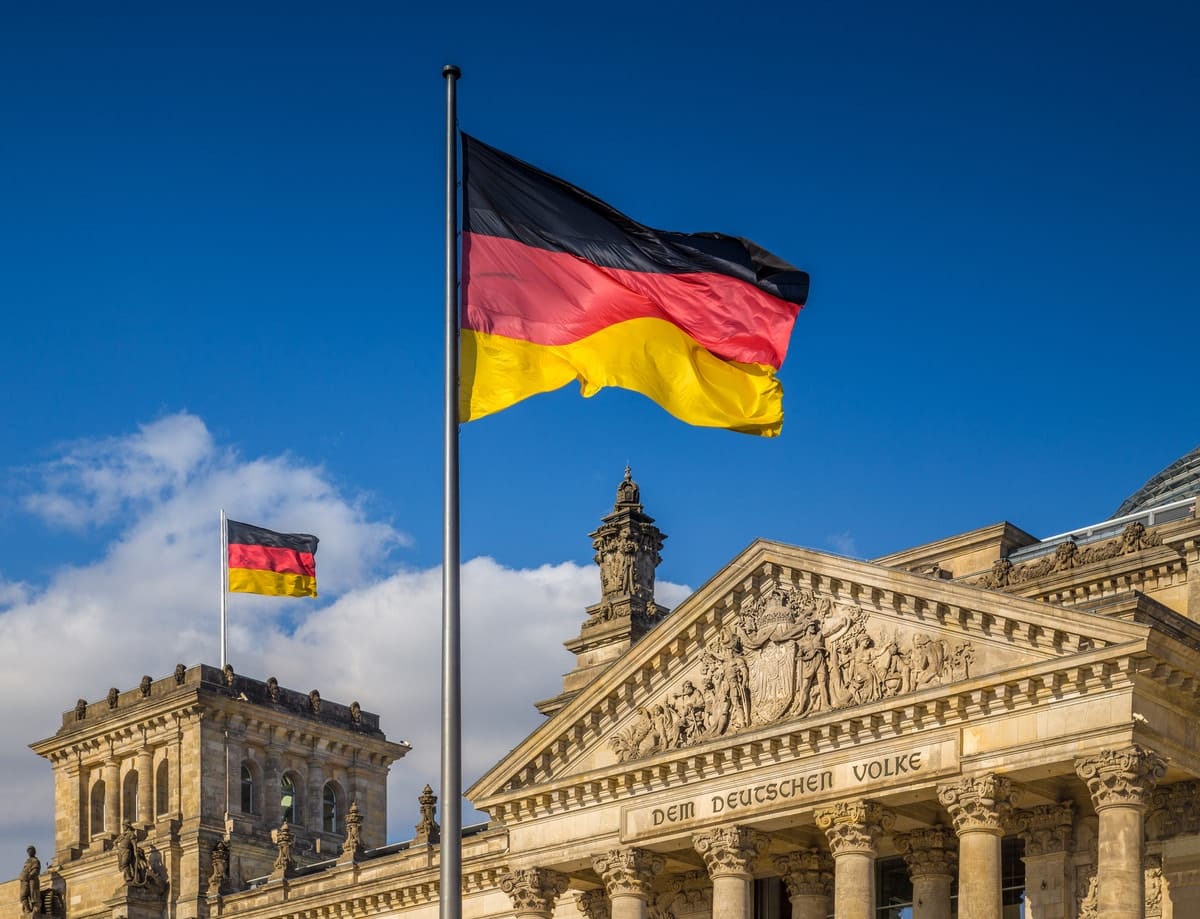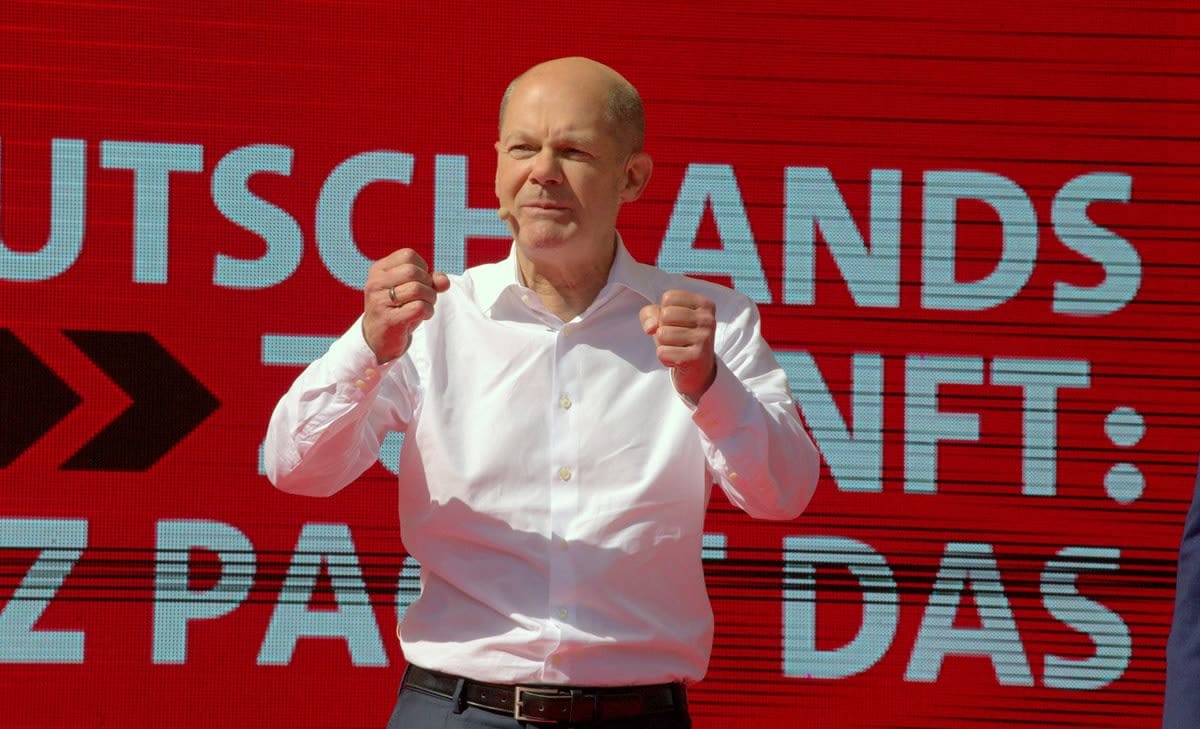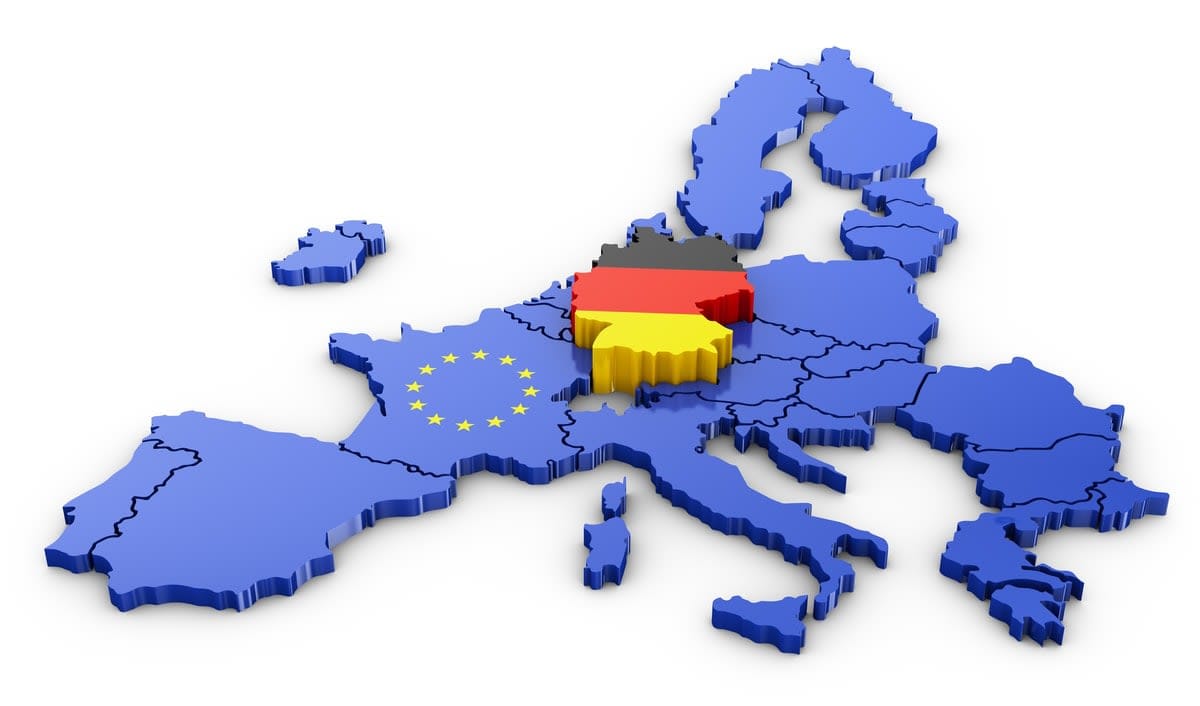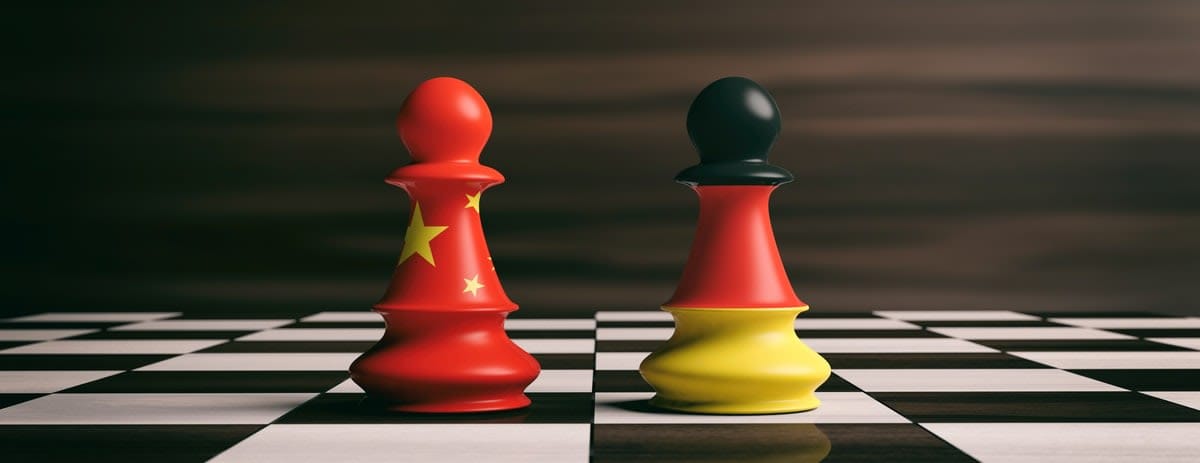
Olaf Scholz has now been sworn in as the new chancellor of Germany, ending Angela Merkel’s 16-year tenure at the heart of German and European politics.
Scholz, 63, earned the nickname “Scholzomat” (“Scholz machine”) due to his efficiency in office. Before being elevated to chancellor, he was finance minister in Merkel’s cabinet, where many saw the pair shared traits, with a considered and sensible approach to policy problems.
In that sense, he’s viewed as something of a safe pair of hands as a replacement for Merkel.
After months of negotiations, Scholz’s Social Democratic Party (SPD) has formed the so-called traffic light coalition of red, green and yellow, with the Greens and the Free Democratic Party (FDP).
Such a situation isn’t without precedent. The Jamaica coalition, comprising a Christian Democrats (CDU) majority, along with the Greens and FPD, was formed in Merkel’s early years as chancellor. From 2013, Merkel’s CDU governed in a “grand coalition” with the SPD as the minor partner.
At first glance, an alliance between the SPD, which typically runs a more socially-oriented political agenda, with the pro-business FDP and the Greens may seem a little strange. However – and despite their differences – all parties recognise the need to modernise elements of the German political landscape.

What does this mean for Germany?
At the heart of Scholz’s domestic agenda is a commitment to moving Germany to a clean economy driven largely by renewable energy. In an October speech, he described it as “the greatest industrial modernisation” Germany had seen in more than a century.
While this is an admirable objective, it’s not without pitfalls for Scholz. The cost will be extremely high, and where the Greens will be pushing to move quickly, the FDP isn’t in favour of heavy government borrowing to do so.
Scholz will need to rely on the skilled and nuanced political manoeuvering demonstrated so ably by Merkel if the new German government is to fulfill such an ambitious policy commitment.
Indeed, some analysts in Germany warn that Scholz and the SPD are courting trouble, with their progressive left-leaning platforms suggesting they’re out of touch with themselves.
Additionally, attempts by elements of the SPD to rewrite the history of the Merkel years as being cold and aloof may backfire, as several Merkel initiatives, such as the refugee intake of 2015, were highly regarded on both sides of German politics.
And for Europe and beyond?
Domestic political hurdles aside, Scholz’s Germany faces considerable challenges on the international front, which may test the integrity of the coalition.
Foremost is Germany’s complicated relationship with Russia. One of the core dynamics is the tension between a strategic need to push back on Russia’s assertive posture against states in the Baltic and eastern Europe, in particular the Ukraine, and the need for Russian energy to fuel German industry.
This is most evident with the controversial Nord Stream project bringing gas from Russia into Germany. However, Germany has not yet approved the operation of the Nord Stream 2 pipeline. Geopolitics have long been at play in the project to bring Russian gas into Europe via Germany.

Vladimir Putin has often been accused of cutting gas supplies into certain European states as a lever for Moscow’s political advantage in a zero-sum game. Yet for Berlin, additional complexity arises through two strategic issues playing out in eastern Europe.
First is Russia’s ongoing policy to destabilise eastern Europe, which continues to be an issue for German leaders. In the past month, Putin has significantly increased the number of Russian forces on the Ukrainian border. United States intelligence fears that further military action against Ukraine may soon follow.
Of course, this may be a calculated ruse on Putin’s part to further distract policymakers in the West, and to sow division among member states of the European Union and between NATO members. Germany is a vital strategic partner in both institutions, and handling Russia will be an early test for Chancellor Scholz.
Second is the migrant crisis, with Belarus President Alexander Lukashenko allowing tens of thousands of refugees seeking to enter the EU through Belarus to mass on the Polish border.
This move is widely considered a calculated political act with tacit approval by Russia. A European response to problems requires a clear and consistent policy from Germany.
The relationship with China
Further afield, China has become an increasingly important factor in German foreign policy, and the new German government has hinted at changes.
Scholz has emphasised the importance of Beijing respecting international law and upholding human rights. In addition, he’s taken a more critical position on Taiwan and Hong Kong, while Germany’s new foreign minister, Greens leader Annalena Baerbock, is advocating a more outspoken “values-based foreign policy”.
For its part, China has warned Germany that any change of tone in foreign policy towards Beijing would not be well-received.
This all suggests a recalibration of German foreign policy where Beijing is concerned.
Whether a new policy comes to replace Merkel’s pragmatic economic approach to China remains to be seen. With China being an important economic partner to Germany, the imposition of realpolitik may yet see Scholz water down his policy and follow a line more consistent with Merkel’s.

Behind all these issues for Scholz sits a divergence on nuclear deterrence policy among his own coalition. The Greens and elements of the SPD, led by SPD factional boss Rolf Mützenich, want to see US nuclear weapons removed from Germany, and are calling for their country to sign the Treaty on the Prohibition of Nuclear Weapons. The nuclear weapons stored in Germany are a central plank in NATO’s nuclear deterrence strategy, and have been since the 1950s.
On this point, however, it’s likely that Berlin will fall on the side of strategic pragmatism, and NATO nuclear policy will be maintained. Yet it could become a tricky issue for Scholz to balance, both within his own party and with Germany’s strategic allies, in particular the United States.
The world will be watching
Germany is a leading European power, and an international economic powerhouse. With the safe and familiar hands of Merkel now off the wheel in Berlin, the world will be watching Olaf Scholz.
One thing is clear – not since Helmut Kohl steered Germany through the end of the Cold War and reunification has a chancellor faced so many significant policy challenges at home and abroad.
Even so, it’s likely Sholz will continue the considered and assured leadership shown by his predecessor.





